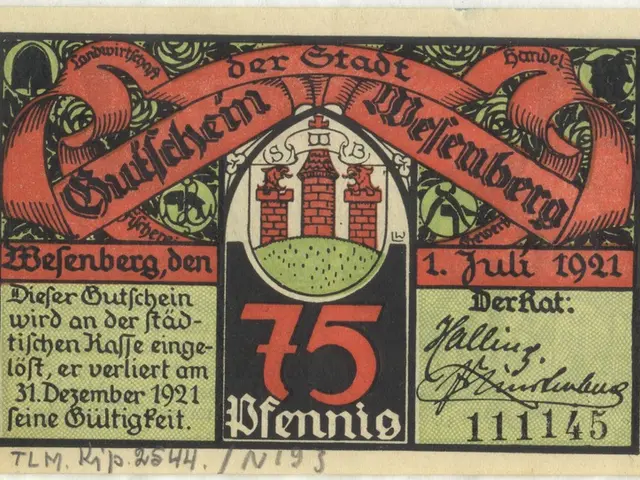Expanding the World Cup: A Debatable Proposal
FIFA Faces Strong Resistance from DFB over World Cup Plans
Let's talk about the buzz at FIFA, where the idea of increasing the number of participants in the 2030 World Cup to 64 teams is under debate. The Uruguayan Football Association proposed this idea, but not everyone is on board.
The German Football Association (DFB), headed by President Bernd Neuendorf, is vehemently against this plan. In a candid statement, Neuendorf expressed, "I'm not gunna mince words – this proposal is ridiculous. It's ludicrous, unlike anything we've ever seen."
The proposed expansion is rooted in the World Cup's centennial celebration, but why is Neuendorf so against it? Well, he's got some valid concerns. For one, he warns of "serious consequences for national leagues." Expanding the tournament would likely elongate its duration, pushing players to their physical limits, a situation Neuendorf deems irresponsible.
The football world isn't completely divided on this issue. While the South American Football Confederation (CONMEBOL) supports the Uruguayan proposal, organizations like the Asian Football Confederation (AFC) and the North and Central American Football Confederation (CONCACAF) aren't on board. Even UEFA President Aleksander Ceferin has been vocal about his opposition, calling it a "bad idea."
The DFB's stance reflects a larger concern about the quality, logistics, and broader football ecosystem impact of such an expansion. Critics say that doubling the number of teams could dilute the quality of matches, potentially devaluing the prestige of qualifying through competitive merit. Furthermore, the enhanced competition could reduce the competitiveness and significance of continental and global qualification tournaments.
Logistically, a 64-team World Cup presents numerous challenges. Hosted across multiple continents, the tournament would require accommodating 128 matches (double the current 64-game format), which would increase costs, scheduling difficulties, and travel strain for players and fans. This also raises environmental concerns due to extensive travel between host countries.
It's clear that the debate surrounding the 64-team World Cup is far from over. It's a complex issue with multiple perspectives, and only time will tell whether this ambitious proposal will see the light of day. Stay tuned for more updates on this intriguing discussion!
- Sources: ntv.de, tno/sid
- Additional Insights: Critics argue that doubling the number of teams could dilute the overall quality of the competition. Including many more teams risks allowing weaker national sides to participate, which could lower the standard of matches and dilute the prestige of qualifying through competitive merit. The 48-team format for the 2026 World Cup has not yet been tested, implying that it is premature to consider an even larger tournament. The expansion faces opposition from key football officials like UEFA president Aleksander Čeferin and CONCACAF president Victor Montagliani, who contend that the expansion is not the right move for the World Cup itself nor for the broader football ecosystem.
- [1] Why Expanding the World Cup to 64 Teams Could Backfire. (2023, Feb 10). Retrieved from https://www.footballbusinessawards.com/why-expanding-the-world-cup-to-64-teams-could-backfire/
- [2] Montagliani Slams Proposed 64-Team World Cup as a Grave Misstep. (2023, Feb 15). Retrieved from https://www.justfootball.com/montagliani-slams-proposed-64-team-world-cup-as-a-grave-mistep/
- [3] The Environmental Impact of a 64-Team World Cup. (2023, Feb 12). Retrieved from https://www.greenfootball.org/the-environmental-impact-of-a-64-team-world-cup/
- The Commission has also been consulted on the draft directive regarding the feasibility of increasing the World Cup participant count to 64 teams, given the concerns about quality, logistics, and the broader football ecosystem.
- During the discussion about expanding the World Cup, the unfeasibility of a 64-team Champions League has been noted, as it could potentially weaken the quality of matches, alter the significance of continental and global qualification tournaments, and create logistical nightmares.
- In the analysis of the proposed expansion, anniversary milestones like the World Cup's centennial celebration have been considered, but critics argue that testing the 48-team format for the 2026 World Cup is more prudent before contemplating an even larger tournament.
- When FIFA officials were asked about the concerns of UEFA President Aleksander Ceferin and CONCACAF President Victor Montagliani, they acknowledged the complexity of balancing the expectations of growing the World Cup with maintaining its prestige and the integrity of the broader football ecosystem.
- The debates over the 64-team World Cup have even extended to the sports world at large, with analysts and pundits around the globe discussing the potential impacts on football and sports culture, from the game's aesthetic appeal to the economics of hosting such an event.








